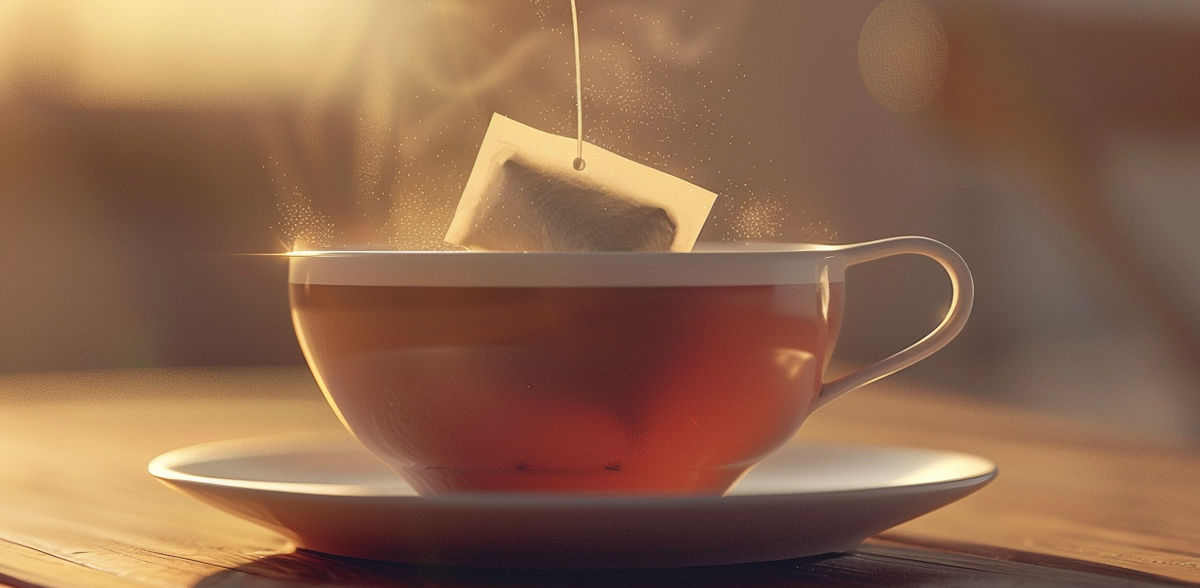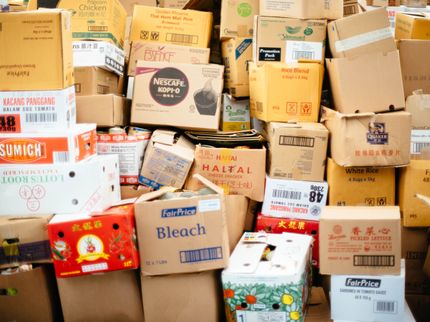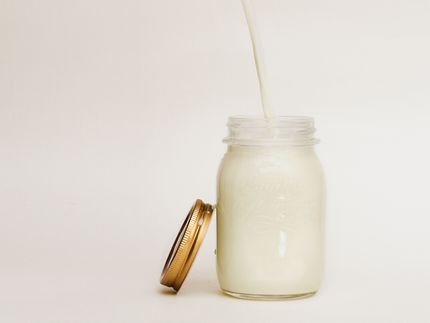Study suggests ‘biodegradable’ teabags don’t readily deteriorate in the environment and can adversely affect terrestrial species
Some teabags manufactured using plastic alternatives do not degrade in soil and have the potential to harm terrestrial species, a new study has shown.
The research looked at commonly available teabags made using three different compositions of polylactic acid (PLA), which is derived from sources such as corn starch or sugar cane.
The teabags were buried in soil for seven months, and a range of techniques were then used to assess whether – and to what extent – they had deteriorated.
The results showed that teabags made solely from PLA remained completely intact. However, the two types of teabags made from a combination of cellulose and PLA broke down into smaller pieces, losing between 60% and 80% of their overall mass and with the PLA component remaining.
The study also examined the impacts of the discs cut from the teabags on a species of earthworm, Eisenia fetida, which has a critical role in soil nutrient turnover as it consumes organic matter.
Researchers found that being exposed to three different concentrations of teabag discs – equivalent to the mass of half, one and two teabags – resulted in up to 15% greater mortality, while some concentrations of PLA had a detrimental effect on earthworm reproduction.
Writing in the journal Science of the Total Environment, the study’s authors highlight the need for accurate disposal information to be clearly displayed on product packaging.
Only one of the manufacturers whose products were chosen for the study indicated on the packaging that the teabags were not home compostable.
This could lead to them ending up in soil, while there is also high potential for consumer confusion about the meaning of terms such as plant-based or biodegradable, emphasising the need for clear guidance on appropriate disposal.
Original publication
Other news from the department science

Get the food & beverage industry in your inbox
By submitting this form you agree that LUMITOS AG will send you the newsletter(s) selected above by email. Your data will not be passed on to third parties. Your data will be stored and processed in accordance with our data protection regulations. LUMITOS may contact you by email for the purpose of advertising or market and opinion surveys. You can revoke your consent at any time without giving reasons to LUMITOS AG, Ernst-Augustin-Str. 2, 12489 Berlin, Germany or by e-mail at revoke@lumitos.com with effect for the future. In addition, each email contains a link to unsubscribe from the corresponding newsletter.





























































